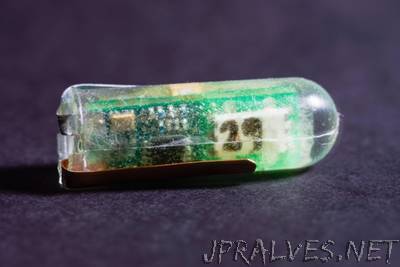
“Researchers at MIT and Brigham and Women’s Hospital have designed and demonstrated a small voltaic cell that is sustained by the acidic fluids in the stomach. The system can generate enough power to run small sensors or drug delivery devices that can reside in the gastrointestinal tract for extended periods of time. This type of power could offer a safer and lower-cost alternative to the traditional batteries now used to power such devices, the researchers say.”
